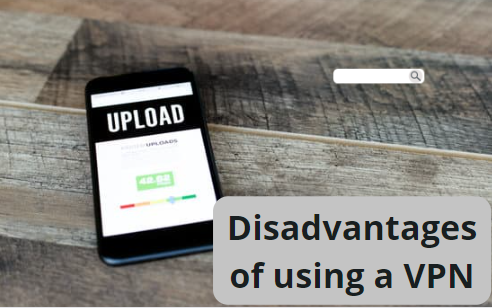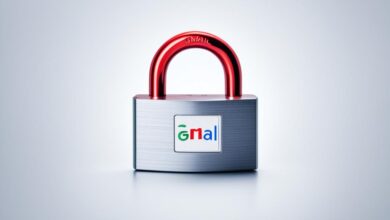In today’s digital age, protecting your online privacy is more crucial than ever. With cybercrime on the rise and hackers becoming more sophisticated, it’s no wonder that virtual private networks (VPNs) have become increasingly popular. However, the question remains, are VPNs really worth it? While some argue that VPNs are a necessity for anyone who values their online security, others believe that they are unnecessary and even a hindrance. In this article, we’ll delve into the 10 Disadvantages of using a VPN. From the cost and speed to the potential risks and limitations, we’ll explore both sides of the argument and help you make an informed decision on whether or not a VPN is the right choice for you. So, buckle up and let’s dive into the world of VPNs to see if they’re really worth the hype.
What is a VPN?
A virtual private network (VPN) is a technology that allows you to create a secure connection to another network over the internet. The main purpose of a VPN is to enhance your online privacy and security by encrypting your internet traffic and hiding your IP address. By doing so, a VPN protects your online activities from being tracked and monitored by third parties such as your internet service provider (ISP), government agencies, and hackers.
Benefits of using a VPN
One of the main benefits of using a VPN is that it enhances your online privacy and security. When you connect to a VPN, your internet traffic is encrypted, which means that your online activities are hidden from prying eyes. This is especially important when you’re using public Wi-Fi networks, which are a prime target for hackers. With a VPN, you can browse the web, stream movies, and download files without worrying about someone snooping on your online activities.
Another benefit of using a VPN is that it allows you to access geo-blocked content. Many streaming services such as Netflix, Hulu, and Amazon Prime Video have different content libraries for different regions. With a VPN, you can bypass these geo-restrictions and access content from anywhere in the world. For example, if you’re traveling abroad and want to watch your favorite TV show, you can connect to a VPN server in your home country and access the content as if you were back home.
Lastly, a VPN can help you avoid censorship and surveillance. In some countries, the government censors the internet and monitors the online activities of its citizens. With a VPN, you can bypass these restrictions and access the internet freely and anonymously. This is especially important for journalists, activists, and people living under oppressive regimes.
Disadvantages of using a VPN
While VPNs have many benefits, they also have some potential drawbacks that you should be aware of. One of the main drawbacks of using a VPN is that it can slow down your internet speed. Because your internet traffic is encrypted and routed through a VPN server, it can take longer for your data to reach its destination. This can be especially frustrating when you’re trying to stream movies or download large files.
Another potential drawback of using a VPN is that it can be costly. While there are many free VPNs available, they often come with limitations such as data caps, slow speeds, and limited server locations. If you want a VPN that offers fast speeds, unlimited data, and a wide range of server locations, you’ll need to pay for a premium VPN service. These services can cost anywhere from a few dollars to several hundred dollars per year.
Lastly, VPNs can also have some limitations when it comes to accessing certain websites and services. Some websites and services block VPN traffic in order to prevent users from bypassing geo-restrictions. This means that even if you have a VPN, you may not be able to access certain websites or services.
VPNs and online privacy
One of the main reasons why people use VPNs is to enhance their online privacy. By encrypting your internet traffic and hiding your IP address, a VPN can protect your online activities from being tracked and monitored by third parties such as your ISP, government agencies, and hackers. This is especially important if you’re using public Wi-Fi networks, which are a prime target for hackers.
However, it’s important to note that not all VPNs are created equal when it comes to privacy. Some VPNs keep logs of your online activities, which means that your online activities can still be tracked and monitored. It’s important to choose a VPN that has a strict no-logs policy and is transparent about its privacy practices.
VPNs and security
In addition to enhancing your online privacy, VPNs can also enhance your online security. By encrypting your internet traffic, a VPN can protect your data from being intercepted by hackers and other malicious actors. This is especially important if you’re using public Wi-Fi networks, which are often unsecured and vulnerable to attacks.
However, it’s important to note that VPNs can also have security vulnerabilities. Some VPNs use outdated encryption protocols, which can be easily cracked by hackers. It’s important to choose a VPN that uses strong encryption protocols such as AES-256, which is currently the industry standard.
VPNs and accessing geo-blocked content
As mentioned earlier, VPNs can also help you access geo-blocked content. By connecting to a VPN server in a different country, you can bypass geo-restrictions and access content from anywhere in the world. This is especially useful for people who travel frequently or want to access content that’s not available in their region.
However, it’s important to note that accessing geo-blocked content using a VPN may violate the terms of service of some websites and services. Some services such as Netflix actively block VPN traffic in order to prevent users from bypassing geo-restrictions. If you’re caught using a VPN to access geo-blocked content, your account may be suspended or terminated.
VPNs and internet speed
One of the potential drawbacks of using a VPN is that it can slow down your internet speed. Because your internet traffic is encrypted and routed through a VPN server, it can take longer for your data to reach its destination. This can be especially frustrating when you’re trying to stream movies or download large files.
However, it’s important to note that not all VPNs are created equal when it comes to speed. Some VPNs have faster speeds than others, and some VPNs have servers that are optimized for streaming and downloading. If you’re looking for a VPN that offers fast speeds, it’s important to do your research and choose a VPN that has a good reputation for speed.
VPNs and cost
As mentioned earlier, VPNs can be costly. While there are many free VPNs available, they often come with limitations such as data caps, slow speeds, and limited server locations. If you want a VPN that offers fast speeds, unlimited data, and a wide range of server locations, you’ll need to pay for a premium VPN service. These services can cost anywhere from a few dollars to several hundred dollars per year.
Trustworthiness of VPN Providers
Not all VPN providers can be trusted to handle your data securely. It’s important to research and choose a reputable VPN service that has a strong track record of user privacy and data protection.
Potential for Logging: While many VPN providers claim to have a “no-logs” policy, there have been cases where VPNs have been found to log user activity. This means that despite using a VPN, your online activities could still be monitored and recorded.
Legal and Jurisdictional Considerations
VPN usage is legal in most countries, but there are exceptions. Some countries have banned or restricted the use of VPNs, and others require VPN providers to comply with data retention laws. Understanding the legal and jurisdictional aspects of VPN usage is essential.
Dependence on VPN Provider
When using a VPN, you are entrusting your online privacy and security to the VPN provider. If the provider experiences a security breach or is compelled to hand over user data to authorities, your privacy could be compromised.
False Sense of Security
While a VPN can encrypt your internet traffic and protect your data from eavesdroppers on public Wi-Fi networks, it does not make you completely invulnerable. Other security measures, such as using strong passwords and keeping your software up to date, are still necessary to ensure comprehensive online security.
However, it’s important to note that the cost of a VPN may be worth it if you value your online privacy and security. The cost of a VPN is often much cheaper than the cost of dealing with the consequences of a cyber attack or identity theft.
Alternatives to using a VPN
While VPNs are a popular choice for enhancing online privacy and security, they’re not the only option available. There are many other tools and techniques that you can use to protect your online activities, such as using a secure browser, using a password manager, and enabling two-factor authentication. It’s important to do your research and choose the tools and techniques that work best for your needs and preferences.
Conclusion
In conclusion, VPNs can be a valuable tool for enhancing online privacy and security. They can protect your online activities from being tracked and monitored by third parties, help you access geo-blocked content, and enhance your online security. However, VPNs also have potential drawbacks such as slowing down your internet speed and being costly. It’s important to do your research and choose a VPN that meets your needs and preferences. Alternatively, you can also explore other tools and techniques for protecting your online activities. Ultimately, the decision to use a VPN or not is up to you and depends on your individual circumstances and preferences.






